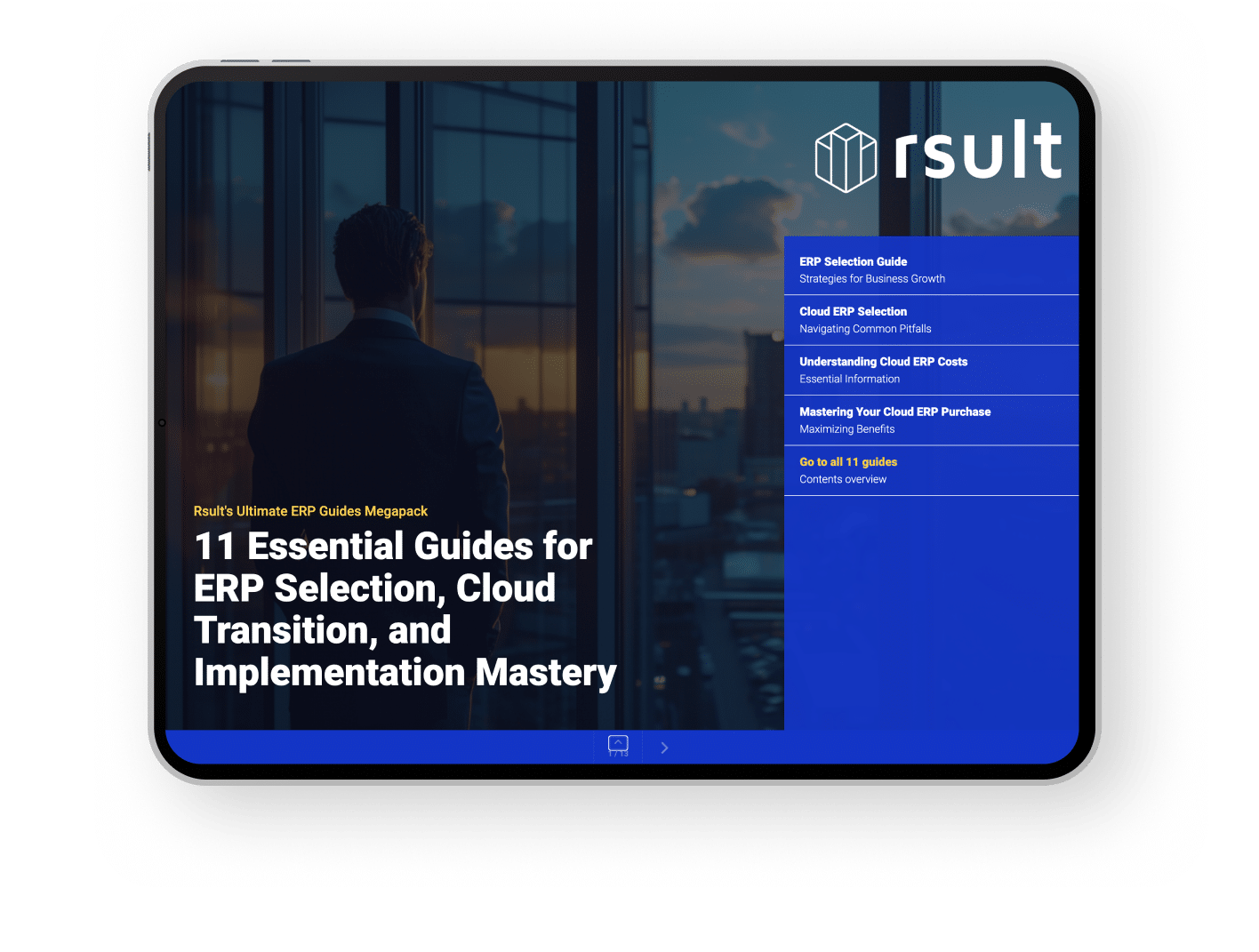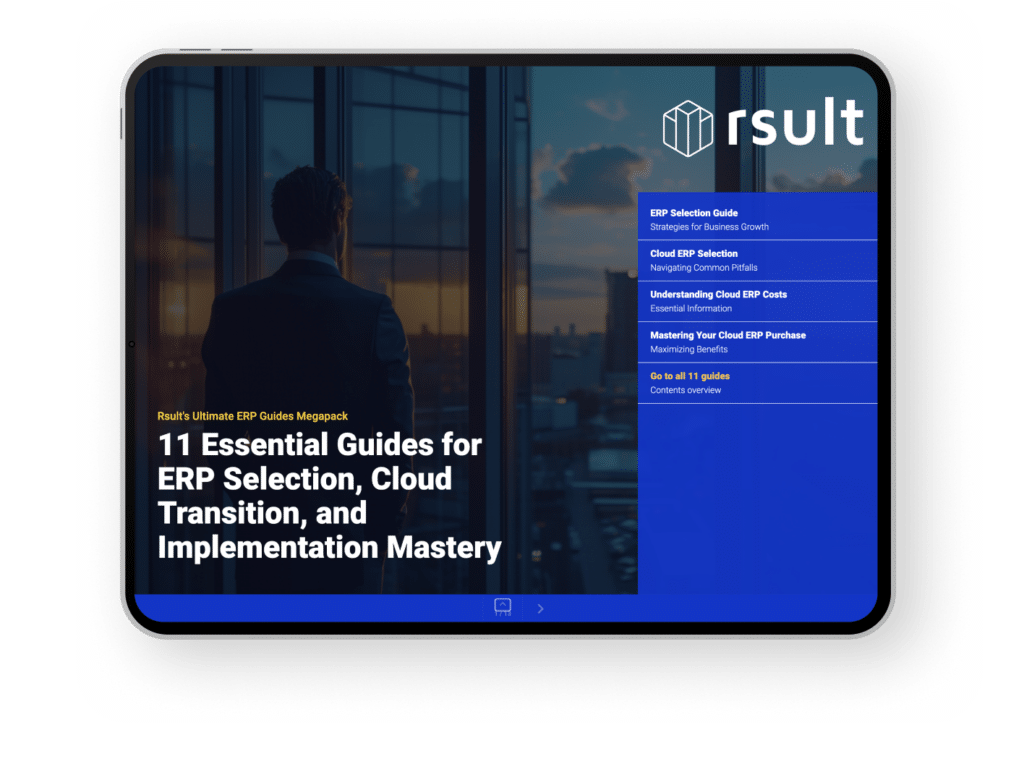Enterprise Resource Planning (ERP) systems have long been synonymous with improving workflow efficiency and driving innovation in manufacturing and other industries. Yet, recent advancements in ERP technology have led to bespoke ERP for legal firms that cater specifically to the demands of the legal sector. By integrating core law firm departments with seamless technology, legal industry ERP systems optimize information sharing, communication, and decision-making while maintaining the strict data security and regulatory compliance required for legal practices.
The Rise of Legal Firm Management Software ERP
As digital transformation accelerates across industries, it is no surprise that law firm management software ERP is breaking new ground for legal professionals. Recognizing the time and cost savings, more firms are adopting legal ERP software to streamline and automate their day-to-day operations, creating a smarter, more connected workplace that lays the foundation for future success.
Key Takeaways
- ERP systems provide a seamless integration of legal firm departments, improving communication and collaboration.
- Legal industry ERP systems offer advanced data security and regulatory compliance measures essential for legal practices.
- ERP for legal firms revolutionizes workflow efficiency and optimizes decision-making by centralizing information sharing.
- Cloud-based ERP systems enhance the accessibility of information and promote a more flexible work environment.
- Firms choosing the right ERP software partner can ensure a smoother digital transformation journey and long-term benefits.
The Rise of ERP Solutions in the Legal Industry
The legal sector has experienced significant transformation as law firms embrace advanced technologies like ERP systems. These innovative solutions seamlessly integrate various operations across departments, improving firm management and communication. In this evolving landscape, successful legal practices rely on efficient, transparent collaboration, which ERP systems readily provide by unifying logistical processes, inventory management, and accounting functions. As a result, ERP for law firms is increasingly crucial to maintaining a competitive advantage and delivering superior services to clients.
Adapting to Advanced Tech in Legal Sectors
As the legal sector continues to adopt emerging technologies, ERP systems stand out as valuable tools in streamlining operations and fostering collaboration. With real-time data analysis, legal professionals can make more informed decisions, increasing the likelihood of successful case outcomes. In addition, cloud-based legal firm ERP software offers robust data security protocols and backup systems, giving law firms peace of mind regarding sensitive information storage.
Integration Across Various Departments
One of the primary reasons for the growing popularity of ERP systems in the legal sector is their ability to support integration across various departments. A legal industry ERP system helps break down barriers between traditionally separate functions, fostering a more cohesive and efficient work environment. This newfound transparency not only improves communication but also empowers law firms to optimize their processes, ensuring exceptional client service and increased competitiveness.
Core Functionalities of Legal Firm ERP Software
Legal firm ERP software is designed to automate major processes within a legal practice, offering features that significantly improve operations and productivity. By employing an ERP system for law firms, legal practices gain complete control over operations and ensure transparency across all departments.
This software supports law firms in the continuous management of their internal and external operations, leading to a more cohesive and streamlined environment. Some core functionalities of ERP software for legal practices include:
- Budget tracking and financial management
- Lawyer and staff management
- Client management and communication
- Case and matter management
- Invoice generation and payment tracking
- Integrated document management and storage
- Automated reminders and notifications
- Advanced reporting and analytics
From the initial client request process to matter management, invoice generation, and effective communication, ERP solutions for the legal industry have become an indispensable tool for modern legal practices seeking to simplify and optimize their activities. The implementation of a comprehensive ERP system empowers law firms to focus on delivering exceptional service to their clients, while benefiting from a streamlined and efficient practice management platform.
Empowering Law Firms Through ERP System Utilization
Enterprise Resource Planning (ERP) systems have revolutionized the way law firms manage their operations by providing a comprehensive solution for workflow automation and better resource allocation. Harnessing the power of ERP for law firms ensures a more efficient and well-organized practice, leading to overall growth and success.
Automated Workflow and Management
ERP systems offer streamlined workflow management tools that eliminate redundant tasks and ensure a synchronized approach across all departments within a law firm. By automating various processes, law firm management software ERP reduces manual entry and accelerates access to critical information, allowing personnel to focus on more valuable tasks such as case analysis, strategy development, and client interaction.
Better Resource Planning and Allocation
One of the key advantages of implementing an ERP system in a law firm is the ability to efficiently plan and allocate resources throughout the practice. Seamless integration of various departments allows for more informed decision-making, which ultimately leads to better utilization of resources and significant time savings. With enhanced resource management, legal professionals can dedicate more time to work on cases and client services, ensuring that they help drive the growth and success of the practice.
How ERP Software Elevates Productivity in Legal Practices
Legal practices that implement ERP for legal firms benefit greatly from increased productivity, which stems from the centralization of information and automation of routine tasks. By streamlining their daily processes, law firms can enable personnel to focus on higher-value work such as case analysis, strategy, and client communication. With improved efficiency, these firms become more competitive in the legal industry.
ERP solutions for legal industry offer features, such as real-time data access and comprehensive reporting tools, which collectively save time and reduce the likelihood of error. Streamlined document management, for example, minimizes the potential for misplaced files, ensuring that vital information is always easily accessible.
Cloud-based legal firm ERP software introduces an additional layer of productivity by providing flexibility and ease of access to firm members regardless of their location. This promotes a more collaborative and responsive legal work environment, better equipping law firms to meet the demands of their clients and stay ahead of their competitors.
- Centralization of Information: With a centralized database, ERP software eliminates the need to search through multiple systems or physical files to gather necessary information. This saves time and allows legal professionals to concentrate on more important tasks.
- Automated Workflow Management: Automation of manual and repetitive tasks improves workflow efficiency, allowing law firms to better manage complex legal cases and prioritize high-priority work.
- Real-time Data Access: Access to up-to-date information enables law firms to make informed decisions quickly, improving response times and case outcomes.
- Advanced Reporting and Analytics: ERP software provides comprehensive reporting tools that help law firms analyze their performance and identify areas for improvement, ultimately allowing for more effective operational strategies.
- Flexibility and Scalability: Cloud-based ERP software allows for seamless integration into existing legal firm infrastructure and can easily scale to accommodate the evolving needs of the practice.
In conclusion, the adoption of ERP software in legal practices fosters a more productive and efficient work environment, which translates to better case outcomes and improved client satisfaction. With stronger performance and more informed decision-making, law firms utilizing ERP solutions are well-equipped to thrive in the dynamic legal landscape.
ERP for Legal Firms: A Strategic Approach to Data Management
Enterprise Resource Planning (ERP) systems offer legal firms a strategic approach to data management by centralizing legal documentation and promoting informed decision-making through real-time access and analysis. The implementation of ERP software for legal practices is crucial for firms navigating the complexities of the modern legal landscape. In this section, we will explore how centralized documentation and real-time access to information contribute to the effective management of a law firm’s data.
Centralizing Legal Documentation
ERP systems for legal firms provide centralized data repositories, storing all pertinent documentation such as case files, client information, and billing records securely in one location. This centralization allows for easy retrieval and sharing of information, enhancing efficiency and transparency across the firm. A legal firm ERP software significantly reduces the time spent searching for and organizing documents, leading to an overall improvement in the firm’s operational processes.
Real-Time Access and Analysis for Informed Decision Making
Real-time access to data is essential for timely and well-informed decision making in legal practices. Legal firm ERP software enables personnel to access and analyze data as it becomes available, ensuring that any developments within a case or the firm’s administrative processes are addressed promptly and effectively. Having the ability to react swiftly to new information is critical for law firms operating in an increasingly competitive market, where rapid response to clients’ needs and complex case developments are vital for success.
In conclusion, ERP systems facilitate strategic data management for legal firms by centralizing documentation and providing real-time access to critical information. This heightened level of organizational intelligence allows law firms to react quickly to any changes and make informed decisions, ultimately improving their ability to provide top-quality services for their clients.
Legal ERP Software: Enhancing Security and Compliance
In the legal profession, the importance of data protection and regulatory compliance cannot be overstated. Legal ERP software addresses these key concerns by integrating advanced security features and compliance management tools, making them an essential component of digital transformation for law firms.
Data Protection: A Top Priority for Law Firms
Legal industry ERP systems prioritize data protection through stringent security protocols such as encryption and backup systems. This ensures that sensitive information remains safeguarded against unauthorized access and potential disasters. By implementing an ERP for legal firms, law practices can mitigate the risks associated with handling confidential information and protect their clients’ trust in an increasingly digital era.
Regulatory Compliance Ensured by Advanced ERP Systems
ERP system for law firms also plays a vital role in maintaining compliance with various regulations and legal requirements the firm must adhere to. By providing tools to manage and monitor compliance standards, law firms can efficiently meet their obligations without being overwhelmed by the complexity of the regulation landscape. Adopting an ERP system with integrated compliance management features leads to a more secure, compliant, and efficient legal practice, enabling law firms to excel in their operations and client services.
Understanding the Financial Implications of Implementing ERP in Law Firms
Investing in an Enterprise Resource Planning (ERP) system is a significant financial decision for law firms. Considering the potential impact on efficiency, productivity, and long-term profitability, it is essential that firms carefully assess the costs and benefits of implementing an ERP system. In this section, we will discuss various factors for law firms to consider while evaluating the financial implications of implementing ERP solutions for legal industry.
Contrary to the belief that the most expensive systems are the best, the true value of an ERP system lies in the features and benefits it offers that match the specific needs of the firm. In order to make an informed decision regarding the right ERP software for legal practices, firms should consider the following factors:
- Establish a clear budget and project the Return on Investment (ROI).
- Assess the financial impact, including initial costs and potential cost savings and revenue generation.
- Evaluate the software’s scalability and its ability to grow with the firm’s evolving needs.
A comparative analysis of different ERP solutions can aid in identifying the best-suited option for a firm. The following table outlines some key financial factors to consider when evaluating ERP systems:
| Factor | Considerations |
|---|---|
| Initial Investment | Upfront costs associated with purchasing and implementing the ERP system, including software licenses, hardware, and employee training. |
| ROI | Project the potential return on investment, considering both short-term and long-term financial gains that the ERP system can bring to the firm. |
| Scalability | Ensure that the chosen ERP system is capable of supporting the firm’s growth, without incurring excessive upgrade costs. |
| Operational Efficiency | Consider how the ERP system will help to streamline processes and eliminate redundant tasks, thereby contributing to cost-savings and improved productivity. |
| Revenue Generation | Evaluate the potential increase in firm’s revenue due to better client services, automation, and time-saving features offered by the ERP system. |
Firms that take the time to properly understand and evaluate the financial implications of implementing an ERP system can make a more informed decision. By weighing costs against potential benefits, firms can choose the ERP solution that best aligns with their needs and delivers the desired return on investment, ultimately ensuring a positive impact on the firm’s overall financial health.
Customization: Tailoring ERP Solutions to Fit Legal Firm Needs
In the legal industry where every firm is unique, a one-size-fits-all solution does not suffice. Customization of ERP solutions is crucial to address specific needs and requirements of each legal firm, resulting in a more efficient use of resources, optimized operations, and a competitive edge in the market. ERP systems offer a high degree of flexibility for customizing and integrating with existing firm-specific processes.
Addressing Unique Legal Firm Operations
ERP systems for legal firms can be tailored to suit the specific workflow requirements of a law firm. With customization, legal practices can modify modules, processes, and functionalities to cater to their unique operational structure, ensuring that the ERP software aligns with their particular business model. By adapting to the firm’s existing practices, the ERP system delivers enhanced operational capabilities and empowers the legal practice to function seamlessly.
Flexible ERP Integration Catering to Firm-Specific Processes
Legal industry ERP systems offer flexibility when it comes to integrating with a law firm’s existing processes. This allows a smooth transition for firms implementing their first ERP system or migrating from existing solutions. Integration capabilities facilitate communication, data exchange, and cohesive operations among the various departments within a firm. This bespoke approach with flexibility in ERP integration ensures that all the crucial aspects of the firm’s operations are catered to, resulting in maximum efficiency and optimal practice management.
Customizing ERP solutions to fit the unique needs of legal firms not only enhances the overall efficiency but also enables firms to maintain a competitive advantage in the legal industry. By seamlessly integrating with existing processes, the adoption of a tailored legal firm ERP software ensures a future-proof solution that supports sustainable growth and business success.
Selecting the Perfect ERP Solution for Your Law Firm
Finding the ideal ERP solution for your law firm requires meticulous consideration of several factors, such as the unique needs of your organization, existing infrastructure, and long-term objectives. This process ensures successful adoption of an ERP system that contributes to the growth and digital transformation of your legal practice.
Start by clearly defining your law firm’s requirements and analyze the technical compatibility of potential ERP systems. Some crucial aspects to consider include:
- Budget planning
- Scalability assessment
- Deciding between cloud-based or on-premise solutions
- Verifying the credibility and expertise of the ERP software partner
These considerations help ensure that the selected ERP aligns with your strategic goals and yields tangible benefits both in the short and long term.
| Consideration | Details |
|---|---|
| Budget planning | Analyzing the cost implications of the ERP system, including the initial investment, maintenance, and software support, to make a cost-effective decision |
| Scalability assessment | Evaluating the ability of the ERP system to accommodate your law firm’s growth and changing needs, such as increased workload or expanding practice areas |
| Cloud-based or on-premise solutions | Comparing the pros and cons of each deployment option, taking into account factors like remote access, data security, and customization possibilities |
| ERP software partner | Checking the credentials and expertise of the ERP vendor, ensuring they provide reliable support and services that align with your law firm’s goals and digital transformation objectives |
In conclusion, approach the selection process diligently and ensure the chosen ERP for law firms enhances your practice in every aspect. The perfect legal firm ERP software should adapt to the unique needs of your organization and provide lasting benefits through advanced ERP solutions for the legal industry.
ERP for Legal Firms: Choosing the Right Partner for Digital Transformation
Choosing the right partner for implementing an ERP for legal firms is a critical step towards a successful digital transformation. The ideal partner not only provides a software solution but also offers invaluable support throughout the implementation process and beyond. They can help overcome initial obstacles, offer expert feedback, and ensure the legal industry ERP system aligns with the firm’s strategic vision.
Law firms should look for several key aspects to facilitate a seamless transition to a more digitally empowered practice:
- Experience in the legal industry
- Quick response capability
- No “geek speak” communication policy
- Guaranteed satisfaction
Selecting the right ERP system for law firms is critical to the future success of your legal business. By considering the aforementioned factors, law firms can ensure they choose the best possible partner for their digital transformation journey.
| Key Aspect | Description |
|---|---|
| Experience in the legal industry | Partners with experience in the legal sector are better equipped to understand the unique requirements and challenges law firms face. |
| Quick response capability | Responsive partners can address issues promptly, preventing potential downtime or disruption in your law firm’s operations. |
| No “geek speak” communication policy | Clear communication is essential for understanding the intricacies of the ERP system and making informed decisions. Partners who avoid technical jargon and explain concepts in plain language are preferred. |
| Guaranteed satisfaction | A partner who guarantees satisfaction indicates confidence in their ERP solution and commitment to ensuring your law firm’s success. |
When selecting the best partner, law firms should consider these factors to ensure they receive the appropriate guidance and support needed for successful ERP implementation and ongoing management. This will result in a valuable, efficient, and secure digital transformation process tailored specifically to your law firm’s needs.
The Long-Term Benefits of ERP Systems in Law Firm Environments
One of the essential elements in today’s competitive legal industry is the ability to adapt to the constantly evolving nature of the business. ERP for law firms, ERP software for legal practices, and legal firm ERP software provide numerous long-term benefits that help ensure the success of law firms.
By streamlining workflows, these ERP systems enable data-driven decision-making and improve overall firm performance. Furthermore, they support sustainable growth, scalability, and better client services. The consistency and reliability offered by ERP solutions lead to enhanced end-user satisfaction and operational excellence.
- Streamlined workflows: ERP systems automate routine tasks, reducing manual entry and human errors, which ultimately improve the efficiency of the law firm.
- Data-driven decision-making: Real-time data analysis and reports generated by ERP software help legal practitioners make more informed decisions, leading to strategic and successful outcomes.
- Improving overall firm performance: With better operational expertise, law firms can focus more energy and resources on case analysis, strategy, and client communication. This heightened level of performance ensures the firm’s long-lasting success.
Moreover, the flexibility to adapt and modify ERP functionalities to match the evolving needs of law firms ensures that their investment in an ERP system continues to be relevant and deliver value over time. As law firms grow, their ERP systems can scale to accommodate new clients, cases, and processes, ensuring that the software remains an effective management tool for firm operations.
In conclusion, the adoption of ERP systems in law firm environments is a wise choice that will undoubtedly deliver long-term benefits and position firms for sustained success in the legal industry.
Transforming Client Services with Law Firm Management Software ERP
Law firm management software ERP has a significant impact on client services by fostering better client engagement and streamlining critical processes like billing and client management. The implementation of ERP systems for legal firms can lead to unparalleled improvements in the overall client experience and the efficiency of the legal practice.
Improving Client Engagement and Retention
ERP for legal firms plays a crucial role in enhancing client engagement by providing efficient communication channels, comprehensive case management, and improved accessibility to relevant information. Better engagement leads to higher client retention rates, reinforcing the competitive standing of the law firm. Furthermore, utilizing law firm management software ERP enables lawyers to have more time to focus on client interactions, formulating case strategies, and delivering outstanding results for clients.
Streamlining Client Management and Billing Processes
Legal industry ERP systems simplify the client management process and reduce the administrative burden associated with billing by automating routine tasks and ensuring accuracy. Streamlined billing and management processes not only save time for legal professionals but also provide clients with transparency and trust in the firm’s services. Accurate and timely billing ensures that clients feel valued and can easily comprehend the charges for the legal services provided, improving overall satisfaction.
In summary, implementing law firm management software ERP leads to better management of clients and billing processes, helping law firms improve their client engagement, retain their clients, and ultimately increase their competitiveness in the highly demanding legal industry.
Conclusion
As the legal landscape evolves, the adoption of ERP for legal firms has become increasingly important for success in a digital world. The integration of ERP system for law firms aims to revolutionize firm operations, data security, and client-centered services. In this context, understanding the benefits of implementing ERP software for legal practices can position law firms to become future-ready and thrive in a highly competitive market.
The Crucial Role of ERP for Future-Ready Legal Firms
By providing a robust technological backbone, ERP systems enable law firms to navigate a rapidly changing legal environment. As the digital landscape demands agility, data-driven insights, and client-focused solutions, an ERP system serves as a critical tool to streamline operations, enhance data security, and improve the overall client experience.
Key Takeaways for Law Firms Considering ERP Adoption
For firms considering ERP adoption, it is essential to recognize the strategic importance of technology in driving efficiency and innovation within the legal sector. Embracing ERP solutions enables law firms to improve their operational efficiency, ensure data security, and provide exceptional client-centered services. With a strong commitment to achieving these goals, firms can position themselves as leaders in efficiency and innovation and be better prepared to tackle the challenges of today’s legal market.
FAQ
What are the core functionalities of legal firm ERP software?
Legal firm ERP software is designed to automate major processes within a legal practice, offering features such as budget tracking, lawyer management, client management, and more. By employing an ERP system, law firms gain complete control over operations and ensure transparency across all departments.
How does ERP software enhance productivity in legal practices?
ERP software elevates productivity within legal practices by centralizing information and automating routine tasks. This centralization enables personnel to focus on higher-value work such as case analysis, strategy, and client communication. The productivity boost is driven by features such as real-time data access, comprehensive reporting tools, and streamlined document management.
How does an ERP system contribute to data security and compliance in a law firm?
Legal ERP software places a high priority on data protection and helps ensure regulatory compliance through advanced security features. With stringent data security protocols, including encryption and backup systems, law firms can safeguard sensitive information against unauthorized access and potential disasters. Moreover, ERP systems aid in maintaining compliance by providing tools to manage and monitor various regulations and legal requirements the firm must adhere to.
What should law firms consider when selecting the perfect ERP solution?
The selection process should begin with a clear definition of the firm’s requirements, followed by an analysis of the technical compatibility of potential ERP systems. Budget planning, scalability assessment, and the choice between cloud-based or on-premise solutions are also pivotal. The selection process is concluded by verifying the credibility and expertise of the ERP software partner to ensure they align with the firm’s goals for digital transformation and growth.
What are the long-term benefits of implementing an ERP system in a law firm environment?
ERP systems offer long-term benefits in law firm environments by streamlining workflows, enabling data-driven decision-making, and improving overall firm performance. These systems support sustainable growth, scalability, and better client services. The consistency and reliability provided by ERP solutions lead to enhanced end-user satisfaction and operational excellence.
How does law firm management software ERP transform client services?
Law firm management software ERP transforms client services by improving client engagement and streamlining billing processes. Such systems enhance the client experience by providing efficient communication channels, accurate and timely billing, and comprehensive case management. Improving client engagement leads to higher retention rates and reinforces the firm’s competitive standing.






